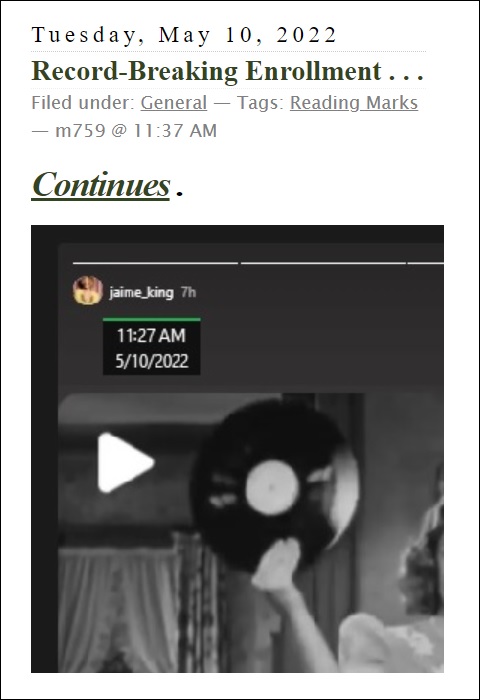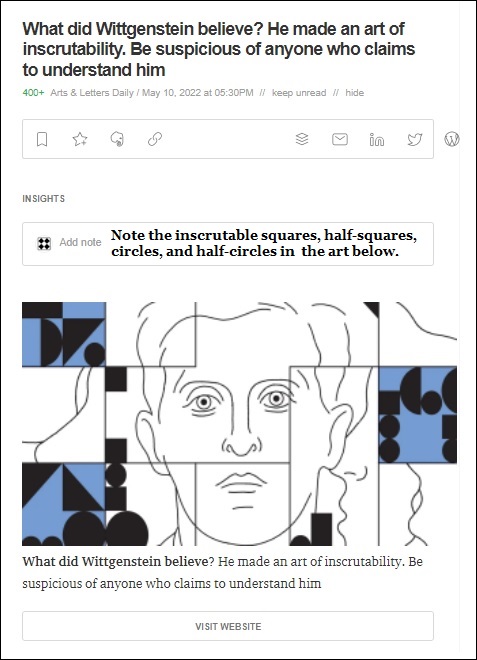"Thine, O LORD is the greatness, and the power, and the glory, and the victory, and the majesty: for all that is in the heaven and in the earth is thine; thine is the kingdom, O LORD, and thou art exalted as head above all."
This verse is sometimes cited as influencing the Protestant conclusion of the Lord's Prayer:
"Thine is the kingdom, and the power, and the glory, forever" (Mt 6.13b; compare 1 Chr 29.11-13)….
This traditional epilogue to the Lord's prayer protects the petition for the coming of the kingdom from being understood as an exorcism, which we derive from the Jewish prayer, the Kaddish, which belonged at the time to the synagogical liturgy.
— World Alliance of Reformed Churches
The Pennsylvania Lottery on Christmas evening paired 173 with the beastly number 0666. The latter number suggests that perhaps being "understood as an exorcism" might not, in this case, be such a bad thing. What, therefore, might "173" have to do with exorcism? A search in the context of the phrase "language games" yields a reference to Wittgenstein's Zettel, section 173:

From Charles L. Creegan, Wittgenstein and Kierkegaard:
Language-games give general guidelines of the application of language. Wittgenstein suggests that there are innumerably many language-games: innumerably many kinds of use of the components of language.24 The grammar of the language-game influences the possible relations of words, and things, within that game. But the players may modify the rules gradually. Some utterances within a given language-game are applications; others are 'grammatical remarks' or definitions of what is or should be possible. (Hence Wittgenstein's remark, 'Theology as grammar'25 – the grammar of religion.)
The idea of the 'form of life' is a reminder about even more basic phenomena. It is clearly bound up with the idea of language. (Language and 'form of life' are explicitly connected in four of the five passages from the Investigations in which the term 'form of life' appears.) Just as grammar is subject to change through language-uses, so 'form of life' is subject to change through changes in language. (The Copernican revolution is a paradigm case of this.) Nevertheless, 'form of life' expresses a deeper level of 'agreement.' It is the level of 'what has to be accepted, the given.'26 This is an agreement prior to agreement in opinions and decisions. Not everything can be doubted or judged at once.
This suggests that 'form of life' does not denote static phenomena of fixed scope. Rather, it serves to remind us of the general need for context in our activity of meaning. But the context of our meaning is a constantly changing mosaic involving both broad strokes and fine-grained distinctions.
The more commonly understood point of the 'Private Language Argument' – concerning the root of meaning in something public – comes into play here. But it is important to show just what public phenomenon Wittgenstein has in mind. He remarks: 'Only in the stream of thought and life do words have meaning.'27
-
24
-
Investigations, sec. 23.
-
25
-
Investigations, sec. 373; compare Zettel, sec. 717.
-
26
-
Investigations, p. 226e.
-
27
-
Zettel, sec. 173. The thought is expressed many times in similar words.
And from an earlier chapter of Creegan:
The 'possibility of religion' manifested itself in considerable reading of religious works, and this in a person who chose his reading matter very carefully. Drury's recollections include conversations about Thomas à Kempis, Samuel Johnson's Prayers, Karl Barth, and, many times, the New Testament, which Wittgenstein had clearly read often and thought about.25 Wittgenstein had also thought about what it would mean to be a Christian. Some time during the 1930s, he remarked to Drury: 'There is a sense in which you and I are both Christians.'26 In this context it is certainly worth noting that he had for a time said the Lord's Prayer each day.27
Wittgenstein's last words were: 'Tell them I've had a wonderful life!'28
-
25
-
Drury (1981) 'Conversations with Wittgenstein,' in Ludwig Wittgenstein: Personal Recollections, pp. 112ff.
-
26
-
Drury, 'Conversations,' p. 130.
-
27
-
Drury, 'Some notes,' p. 109.
-
28
-
Reported by Mrs. Bevan, the wife of the doctor in whose house Wittgenstein was staying. Malcolm, Memoir, p. 81.
















